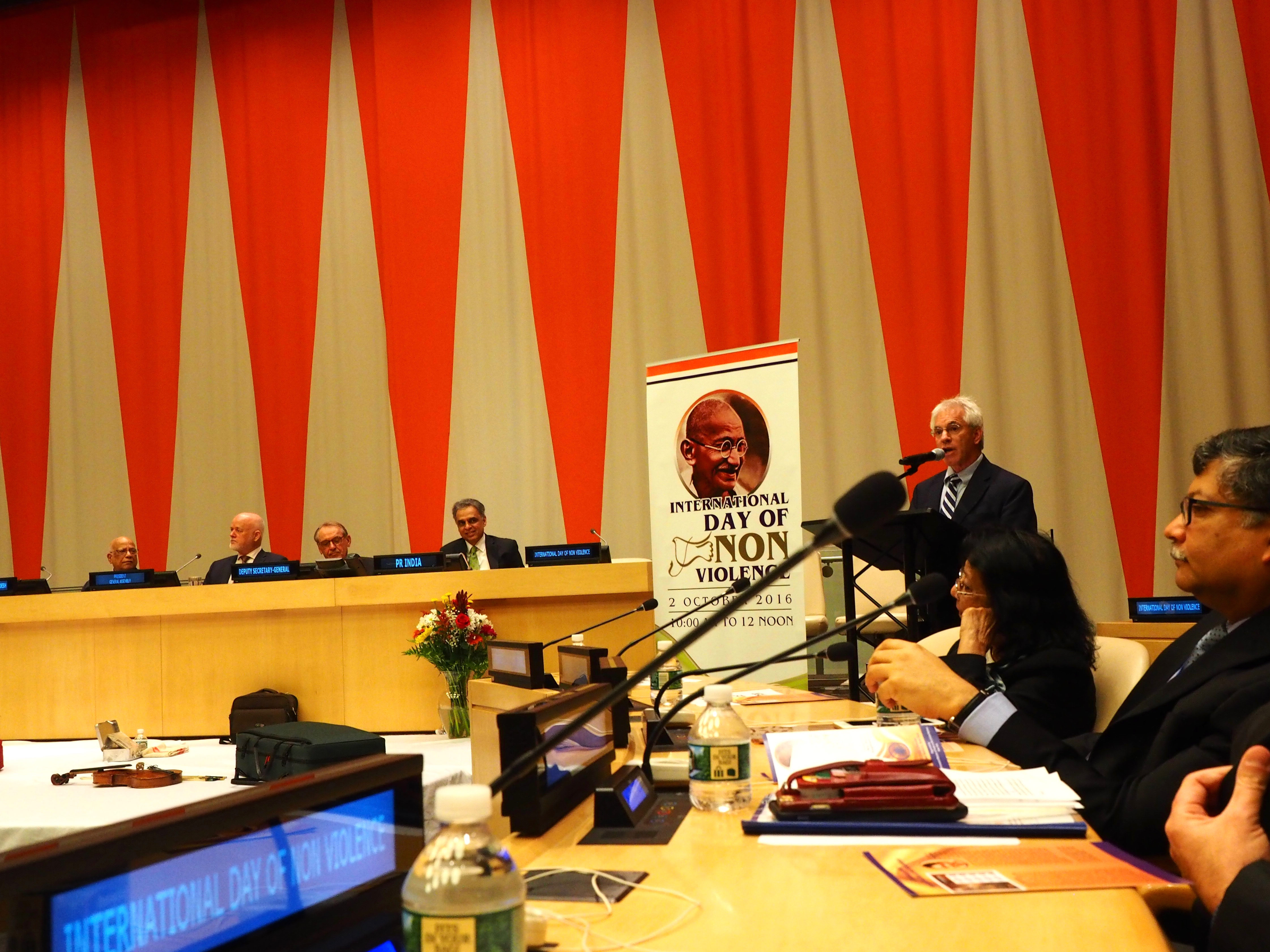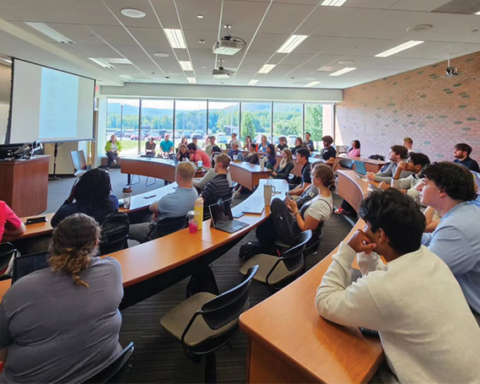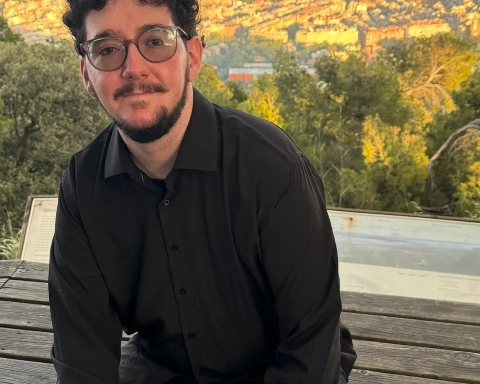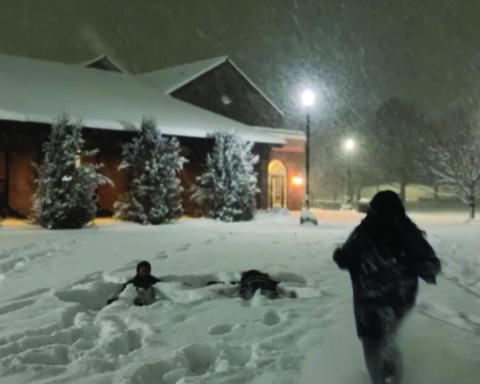By Cameron Pettrone
Staff Writer
Presenter Robert L. Holmes, emeritus professor of philosophy at the University of Rochester and avid pacifist, believes that war is a cooperative undertaking by all sides, not just the aggressor.
Holmes was a speaker at St. Bonaventure’s Concerned Philosophers for Peace conference, held Oct. 13 to 16, which covered issues pertaining to contemporary politics, feminism and war.
“If one country attacks another and they strike back, they initiate the fight,” he said.
Holmes used examples like duels and fights to demonstrate his point.
He said if someone shoots another person unprovoked, that is murder. A duel only occurs when both parties agree to the terms. Similarly, a fight is not a fight until both participants are actively engaged in combat; if someone punches someone else and they don’t respond with violence, that is assault.
“Something can’t force you to fight, something can’t force you to wage a war,” Holmes said. “We all have that freedom.”
Lynn Duffy, a freshman psychology major, disagreed with this aspect of Holmes’ argument, believing that the act of a country defending itself should not be considered the initiator of war in a situation in which there is no other option.
“In that situation, the blame shouldn’t be placed on them,” she said.
She explained that there is a fine line between an act done for the purpose of self-preservation and an act of revenge or retaliation. Someone acting in self-defense should not be judged the same as someone who acts beyond that point, she said.
Holmes’ perspective opened up a door to other ways of conflict resolution rather than aggressive retaliation.
Another major component of Holmes’ argument is that only the actions of individuals are morally accessible. He called the action done by conscious, rational beings primary action and, according to him, it differs radically from the actions done by groups of people, or secondary action, as he called it.
On these grounds, the actions of the individual can be the only true moral indicator.
Holmes used his “one morality” viewpoint to further his argument that war is the result of the morals of individuals; we are the ones that choose war.
“In the end, there is no collective morality,” he said.
According to him, since individuals are the only entities capable of being moral agents, the “us versus them” mentality of war is inaccurate and has led time after time to devastation. He believed that the focus should instead be on the conduct of the individual in order to fully understand the rationale that ultimately leads or does not lead to war.
Holmes referred to Muhammad Ali’s famous pacifist stance in his presentation to relate to his idea that it is the actions and morals of individuals, not the state, which orchestrates events such as war.
Ali was quoted saying, “I will not disgrace my religion, my people or myself by becoming a tool to enslave those who are fighting for their own justice, freedom and equality. If I thought the war was going to bring freedom and equality to 22 million of my people they wouldn’t have to draft me, I’d join tomorrow.”
Holmes said that war is a pointless endeavor.
His presentation offered a message that only through the practice and adoption of morals associated with human beings can we reach a point as a species where war is obsolete and global unity can be achieved.
These morals include honesty and truthfulness as opposed to morals that are commonly justified by the state such as spying, deceiving and lying.
pettrocj16@bonaventure.edu







